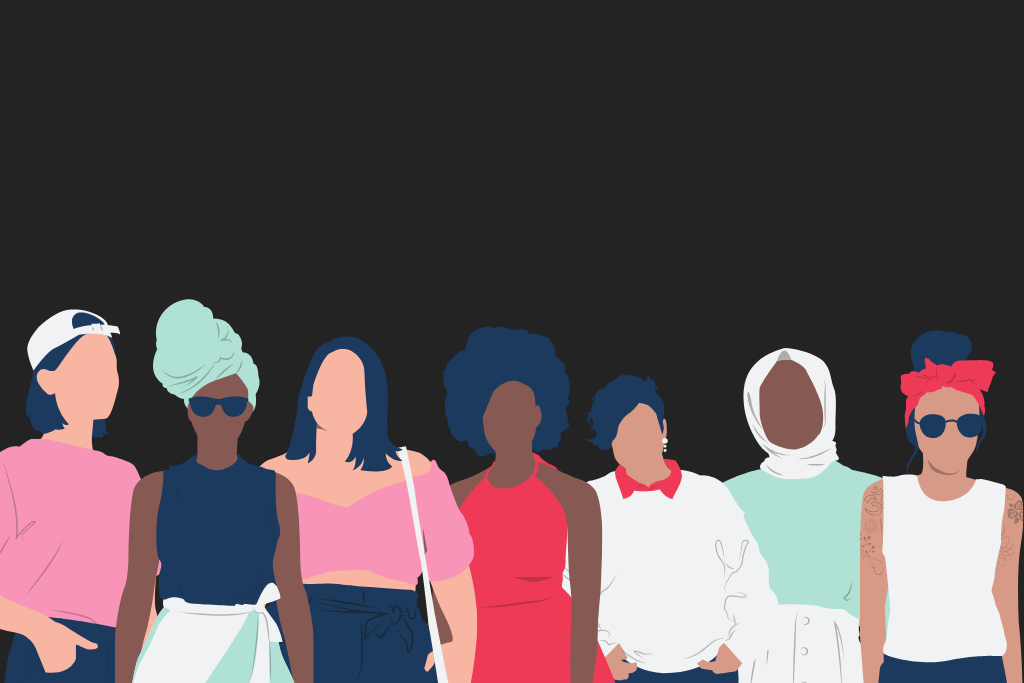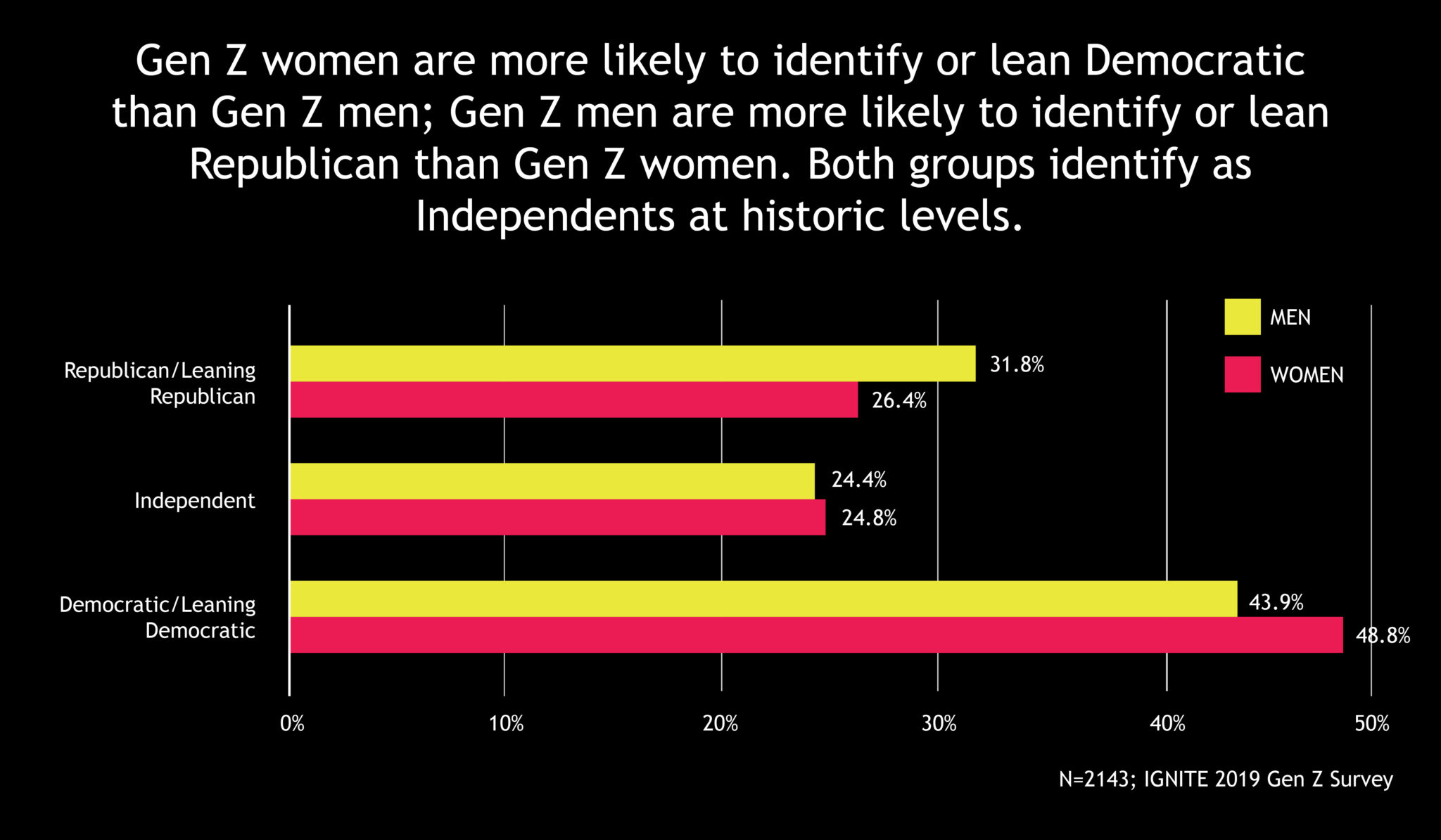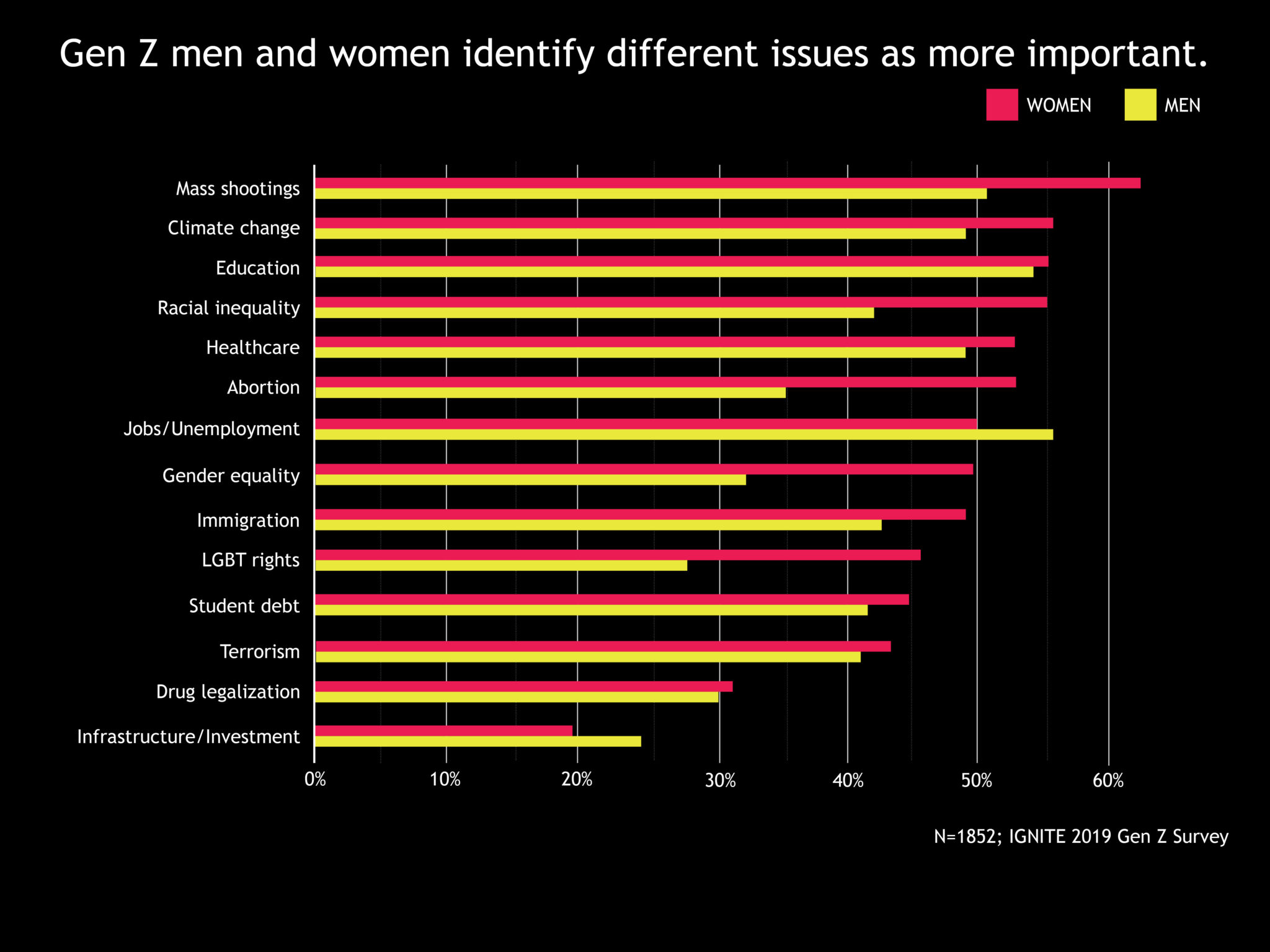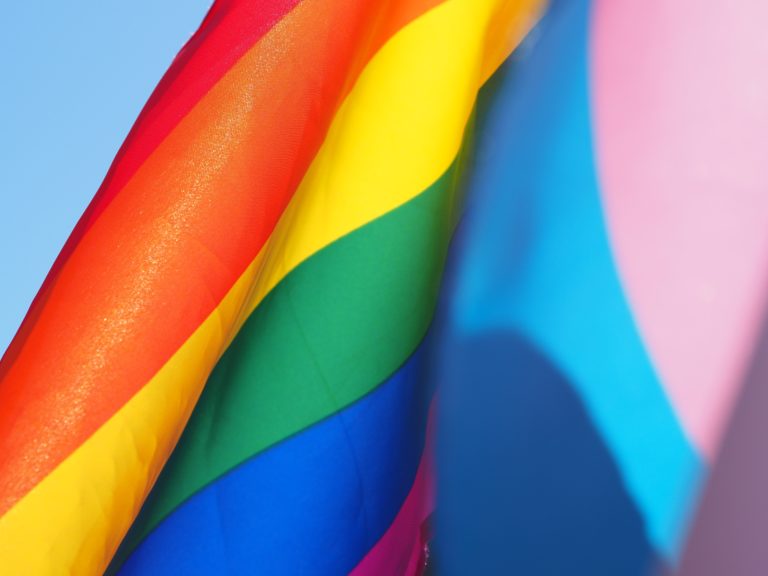As the 2020 election cycle ramps up in earnest, we at Project LPAC have…
New IGNITE Research: Priorities and Politics of Gen Z Women

Last April, 22 year old Karla Garcia was elected Trustee for the Dallas, TX Independent School District. Her election is notable for several reasons. First, she won with 60 percent of the vote by turning out young people in her community. Second, she is one of the first members of Generation Z to win political office.
Karla’s political journey may be a glimpse into the future, one in which young women participate more politically than young men. My nonpartisan organization, IGNITE, trained Karla and other young women to run for political office. We recently conducted a survey of more than 2,200 Gen Z Americans to understand the priorities and political choices of Gen Z women nationally. Our results show a generation of young women who are far more likely to embrace progressive political concerns. While many are skeptical generally of government and elected officials currently in office, the research shows that Gen Z women are especially critical of the Republican Party and Donald Trump.
Our survey of Gen Z Americans aged 18 to 23 found that young women are essentially twice as likely to identify as Democrats or Democratic-leaning (49%) than Republican (26%)—and are more likely to do so than young men of the same age (44% Democratic and 32% Republican). Among young Gen Z women of color, and those in college, the proportion of Democratic women is even higher.

Moreover, the political priorities of Gen Z women are more aligned with the left: 62% of Gen Z women said that the issue of mass shootings is critically important to them; 56% rate climate change as critically important; 55% cite racial justice as one of their top concerns. Notably, 85% of women in our sample support laws that grant at least some legal access to abortion; 48% support unrestricted access. This finding holds true even among Gen Z Republican women, only 25% of whom support no legal access to abortion at all.

How might these concerns play out at the ballot box among young women in 2020? Of Gen Z women who say that are likely to vote in 2020, just 15% intend to vote for President Trump while 47% will likely choose the Democratic nominee, whoever that may be; the remainder are undecided or will vote for a third-party candidate.
Historically, America’s youngest generation are ‘unreliable’ voters, and so conventional political wisdom posits it isn’t worth addressing their concerns or mobilizing them as a voting bloc. Yet results from the 2018 midterms show that 38% of 18-to-24 year women turned out to vote – much higher than in other recent midterm elections. For college women, that rate was 43 percent, more than twice their 2014 turnout and almost as high as their turnout in 2016! Given that Generation Z and Millennials will make up the largest share of eligible voters in 2020, both parties should pay heed to their concerns, particularly those of young women, who both vote at higher rates than young men and have higher levels of political engagement.
To be sure, young women could sit on the sidelines in November 2020, especially if neither candidate makes a compelling case that s/he will address the issues they care about most. But whoever the challenger is, s/he and President Trump would have to be tone deaf to not realize a generation of young women is more politically engaged than ever before, and the fate of their campaigns – and the country – may rest in their hands.






